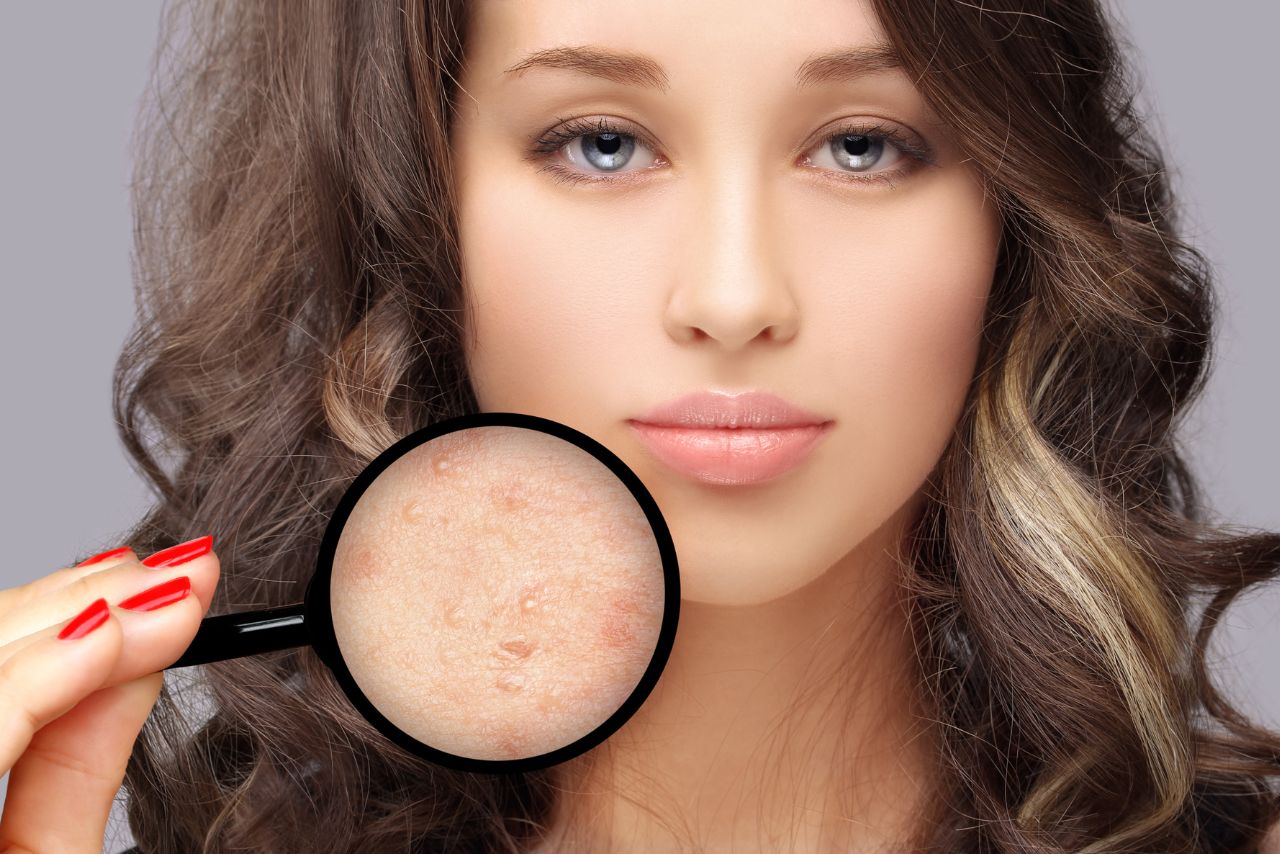
What causes acne scars?
Acne affects most individuals as point during their life, whether it’s during their teenage years or well into adulthood. Unfortunately for some people, acne pustules can form nodules and cysts that cause further damage to the skin. When the skin is damaged during the healing process of acne inflammations, scars are left behind. Genetics plays a large role in whether scars appear or not, and these scars always take 2 forms: atrophic or hypertrophic. The type of scar that develops depends on whether collagen is lost or gained during the healing process, with atrophic scars appearing when there is a loss of collagen, and hypertrophic or keloid scars forming when there is a net gain of collagen. About 80–90% of scars are atrophic, which appear as depressions in the skin. Atrophic scars can be classified further into 3 subtypes: ice pick, rolling, and boxcar scars.
Can acne scars be treated?
Many people are self-conscious about the appearance of their acne scars, and thankfully there are treatment options available to diminish their appearance. Skin resurfacing treatments like dermabrasion, micro-dermabrasion, and chemical peels can all help reduce the appearance of shallow scars and discoloration caused by scarring. Retinoic acid, laser treatment, and punch excision surgeries or needling are also a few options. However, one of the most popular and effective treatments is dermal filler injections, which help to fill in the depressions that cause the appearance of acne scars.
How can Juvederm help acne scars?
Juvederm, a hyaluronic acid-based dermal filler, specializes in adding volume and hydration to the skin in order to smooth out the appearance of lines, wrinkles, and other skin imperfections. Juvederm can effectively be used to diminish the appearance of acne scars by injecting the gel into the dermis/epidermis directly under atrophic scars in order to raise the depression in the skin. For this technique, a formulation that provides plumping effects can be used to target specific individual scars. Another effective technique is to use a lighter formulation and injecting it into the general area where scars are present to provide an overall skin boosting, conditioning, and hydrating effect. Juvederm is particularly effective because it not only provides instant plumping from the gel, but it also helps to spark collagen production by stimulating the fibroblasts within the skin during the injection process. This means that results will also improve over the weeks following injection.
Is it permanent?
While results are immediately apparent, hyaluronic acid dermal fillers don’t last forever. As hyaluronic acid is a substance that is found naturally within the body, it is also naturally broken down over time. Studies have shown that Juvederm can provide results that last up to 1 year, though results will vary by patient depending on a number of factors. Some doctors find that the acne scars will never return back to their original state, with improvements permanently visible due to a slight amount of subcision during the injection process. Additionally, patients can receive touch ups with Juvederm when results begin to subside.

About the Author: Doris Dickson is a specialist writer for Health Supplies Plus, focusing on the aesthetic medicine industry. She diligently researches cosmetic treatments and products to provide clear, concise information relevant to licensed medical professionals. Her work supports Health Supplies Plus’s commitment to being a reliable informational resource and trusted supplier for the aesthetic community.
Disclaimer: The content provided in this article is intended for informational purposes only and is directed towards licensed medical professionals. It is not intended to be a substitute for professional medical advice, diagnosis, or treatment, nor does it constitute an endorsement of any specific product or technique. Practitioners must rely on their own professional judgment, clinical experience, and knowledge of patient needs, and should always consult the full product prescribing information and relevant clinical guidelines before use. Health Supplies Plus does not provide medical advice.
